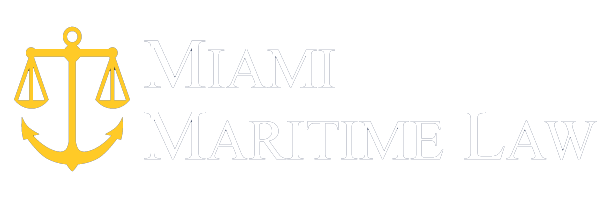Basic Claims Tips
Webster’s New World Dictionary defines insurance “as being insured against a loss…. under stipulated conditions a contract guaranteeing such protection.” Black’s Law Dictionary says it is a “contract whereby one undertakes to indemnify.”
-
- REPORT YOUR CLAIM PROMPTLY AND BE INFORMED
Get a replacement copy of your policy and Declarations Page as soon as possible. Check the stated dollar limits for your main coverage categories: Dwelling, Contents (personal property), and Additional Living Expenses. Check for building code/ordinance coverage, “endorsements”, (extra coverages), and “scheduled” personal property items, (artwork, jewelry, valuables). Make sure the policy limits accurately reflect the coverage you thought you had purchased. Get a copy of the regulations or laws that govern fair claim settlements in your state from your Department of Insurance and READ THEM! - MAINTAIN AN INSURANCE CLAIM DIARY
Take and keep detailed notes of all conversations with insurance company representatives…record their names, phone numbers, job titles and supervisor’s names. Set deadlines and enforce them. Confirm agreements in writing. - YOU MUST COOPERATE WITH REASONABLE REQUESTS FOR INFORMATION BUT DO NOT GIVE RECORDED OR SWORN STATEMENTS ABOUT YOUR PROPERTY OR COVERAGE UNTIL YOU UNDERSTAND YOUR RIGHTS
You are legally obligated to cooperate with reasonable requests for information from your insurance company that relate to your claim. You may be asked to give a recorded statement or participate in an “Examination Under Oath”, (often referred to as an “EUO”) Use your own tape recorder to record your statement and the insurer’s questions, and consult with an attorney before giving an EUO, particularly where the insurer has hired an attorney to conduct the EUO. Don’t be intimidated NOTE: You are not obligated to give your insurer copies of tax returns. - UNDERSTAND YOUR RIGHTS BY LEARNING ABOUT THE REGULATIONS AND LAWS THAT GOVERN HOW INSURANCE CLAIMS ARE SUPPOSED TO BE HANDLED IN YOUR STATE
Every state has regulations and laws that govern how insurance companies are supposed to handle claims. The agency that regulates insurance companies in your state should give you information on the regulations and laws that protect you. Consumer organizations, policyholder attorneys, (check your local yellow pages under “Attorneys-Insurance”, and public adjusters should also be sources of this information. - DOCUMENT YOUR LOSS AS THOROUGHLY AS YOU CAN
In most cases, written or photographic proof of destroyed items will also have been destroyed in a fire. Your descriptions of lost items, along with descriptions given by witnesses, family members, neighbors and friends, should suffice and your company must reimburse you according to your policy. Credit card companies and retailers can help you reconstruct purchases and identify replacement costs. Public adjusters can help if you are overwhelmed with the prospect of preparing a complete personal property inventory. IMPORTANT: Always get your own appraisals and estimates to replace art, antiques, and valuables so you can compare them with those obtained by the insurance company. - THERE IS A DIFFERENCE BETWEEN REPLACEMENT, GUARANTEED REPLACEMENT, AND ACTUAL CASH VALUE COVERAGE
“Actual Cash Value” is defined in California as “Fair Market Value”, which is the amount a willing buyer would pay a willing seller under no duress. ACV does not mean replacement cost minus depreciation. Be prepared to fight to get the full amounts you’re entitled to. Insurers often exploit consumer confusion on this issue and are inconsistent in the way they calculate and deduct depreciation. - “ADDITIONAL LIVING EXPENSE” COVERAGE ENTITLES YOU TO MAINTAIN YOUR STANDARD OF LIVING
Submit for reimbursement all receipts of meals, lodging, and purchases from the time of the fire until your home is rebuilt. Maintain copies for your records. If insurance company delays or circumstances beyond your control made the rebuilding or repairs take longer, argue for longer ALE benefits. - BE EXTREMELY CAUTIOUS ABOUT THE REBUILDING OF YOUR HOME. YOU ARE ENTITLED TO “LIKE KIND AND QUALITY”
Guaranteed or extended replacement cost coverage entitles you to rebuild the same quality and style home you had, EVEN IF THE COST OF REBUILDING EXCEEDS YOUR STATED POLICY LIMITS. If you don’t have this coverage, or coverage for “building code compliance” find out why you don’t. Read your policy carefully, contact the agent through whom you bought the policy and get professional help. - ALWAYS GET YOUR INDEPENDENT ESTIMATES AND CONSIDER HIRING YOUR OWN CONTRACTOR. YOU DO NOT HAVE TO ACCEPT THE INSURANCE COMPANY’S CONTRACTOR OR ESTIMATE
- Beware of “lowball” estimates from insurance friendly contractors.
- Get written estimates of the true cost of replacing or repairing your home from reputable, independent professionals you would hire to do the actual work.
- If you do not intend to rebuild the exact same house, you are still entitled to settle your claim on the basis of estimates to replace what you had. To ensure a fair settlement, get contractor estimates on the original plans for your home. If none exist, it’s worthwhile to pay to get “as-built” drawings of your former home and get contractor estimates on those drawings.
- MAKE SURE YOUR CONTRACTOR AND THE INSURER’S CONTRACTOR ARE BIDDING ON THE SAME “SCOPE”
Get a “scope” of work from your adjuster that defines the amount and nature of repairs they believe are needed. Have an independent contractor review and if necessary, revise the scope. Try and reach an agreement with the adjuster on a scope, then get estimates on that scope so you and the insurer are comparing “apples to apples.” This resolves the most common problem that turns claims into disputes. - DO NOT SIGN ANY RELEASES OR WAIVERS OF ANY KIND UNTIL YOU KNOW YOUR RIGHTS
You should not have to sign a release to settle an undisputed claim. If your insurer wants you to sign a release, find out why and be cautious about signing away your rights. - GET PROFESSIONAL HELP IF YOU NEED IT
Particularly on large claims, you may need the help of a professional to recover your full insurance benefits. Attorneys who specialize in representing policyholders, (insureds), and public adjusters are available and may approach you. Contingent and percentage fee agreements allow consumers economical access to professional help but affect the amount of your settlement. Percentage fees are always negotiable. Check references and professional standing. - IF YOUR BUSINESS WAS DESTROYED — ALL THE ABOVE APPLY — PLUS, YOU ARE ENTITLED TO COVERAGE FOR BUSINESS INTERRUPTION
But… Beware — business interruption coverage only lasts a specified period of time. Check your policy. Make sure the contractor completes repairs before your business interruption coverage is exhausted.
- REPORT YOUR CLAIM PROMPTLY AND BE INFORMED

